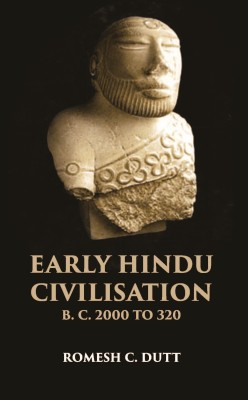EARLY HINDU CIVILISATION B. C. 2000 TO 320(Hardcover, ROMESH C. DUTT)
Quick Overview
Product Price Comparison
About the Book:-The author reveals that the noted European scholars have made important discovery during the 19th century with the help of the old Aryan language preserved in India, form one of the most brilliant chapters of the advancement of human knowledge. It is not his intention to give a sketch of that history here: but a few facts which relate specially to Indian antiquities may be considered interesting. The attention of European literary men was roused to the value and beauty of Sanskrit literature and the greatest literary genius of the modern age have recorded his appreciation of the Hindu dramatic piece in lines which have been often quoted, in original and translation. This is a reproduction of the original artefact. Generally these books are created from careful scans of the original. This allows us to preserve the book accurately and present it in the way the author intended. Since the original versions are generally quite old, there may occasionally be certain imperfections within these reproductions. About the Author:-Romesh Chunder Dutt CIE (Bengali: 13th August 1848 ŌĆō 30th November 1909) was an Indian civil servant, economic historian, writer and translator of Ramayana and Mahabharata. He was educated in various Bengali District schools, then at Hare School, Calcutta. After his father's untimely death in a boat accident in eastern Bengal, his uncle, Shoshee Chunder Dutt, an accomplished writer, became his guardian in 1861. He wrote about his uncle, "He used to sit at night with us and our favorite study used to be pieces from the works of the English poets. " He was a relative of Toru Dutt, one of nineteenth century Bengal's most prominent poets. At that time, only one other Indian, Satyendra Nath Tagore, had qualified for the Indian Civil Service. Dutt aimed to emulate Tagore's feat. For a long time, before and after 1853, the year the ICS examination was introduced in England, only British officers were appointed to covenanted posts. The Titl


